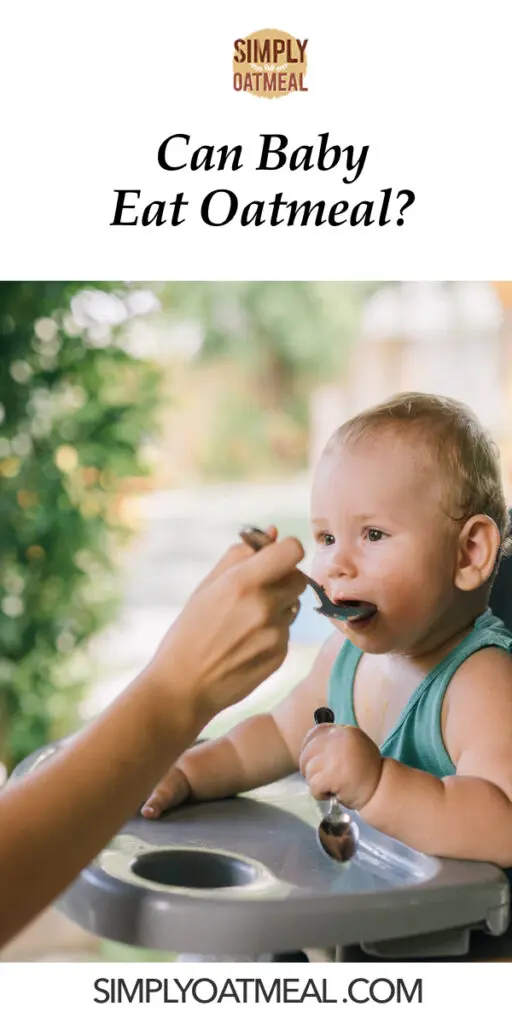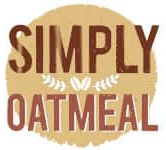Do you have a baby at home and are you wondering whether you can feed him/her prepared oatmeal? If yes, look no further as you have landed on the right page.
Oatmeals have a unique nutritional profile that is enriched with essential vitamins and minerals, dietary fiber, and antioxidants. This strong nutritional profile will help support the growth and development of your baby.
To be more precise, oats are comprised of essential minerals like phosphorous, iron, zinc, potassium, magnesium, sodium, and calcium that are great for the bone development and neurological functions of your baby.
As a responsible parent, it’s your duty to ensure that your babies can get the right balance of nutrients as they grow up. Isn’t it? As a result, homemade oatmeal recipes are recommended for babies to eat.
To learn more about oatmeal for babies, please continue reading. This article covers all the required information that will help you understand whether babies can eat oatmeal, if oatmeal is safe for babies to eat, what type of oatmeal do babies eat, and what’s the best time for babies to eat oatmeal.

Feeding Oatmeal To Babies
Oatmeal is loaded with nutritional value, that is clear, but what is the best way to introduce oatmeal to babies. For instructions and more, continue reading to learn the best ways to start feeding oatmeal to babies.
Is it safe for babies to eat oatmeal?
It’s absolutely safe for babies to eat oatmeal. This gluten-free single grain food prepares into a soft and tender texture that is gentle on your baby’s digestive system. Furthermore, oats come with very little risk of adverse reactions or side-effects for babies.
Start off with plain oats cooked in water, then progress with minimal ingredients added. Make sure that the cooked oatmeal has completely cooled to room temperature before serving to a baby.
It’s optimal to feed your babies 100% organic, homemade oatmeal recipes that contain no extra color, flavor, or artificial additives. Oatmeal promotes fullness and ensures a healthy appetite of well balanced nutrition.
When can you start oatmeal for babies?
You can start feeding oatmeal for your babies when they are at least six months old. Until they turn six months, you should only breastfeed your baby. Check out Overnight Oats for Breastfeeding.
As they continue to grow, their bodies will demand more nutrients and vitamins for adequate growth and development. Hence, it’s the right time to introduce your babies to new food options like oatmeals after six months of age.
How do I introduce oatmeal to my baby?
Consult with your pediatrician before starting any new dietary regimen. If you doctor gives the go ahead, then it’s time to incrementally add oatmeal to the babies diet.
If your baby has already turned six months, you can now start to introduce oatmeal to his/her diet. It’s recommended to begin with simple oat recipes, such as oatmeal porridge made with water or even try a small amount of oat milk.
Once your baby has become comfortable with plain prepared oats and he/she can digest it properly, you can then add some flavors and more ingredients like seasonal fruits and veggies. Well, it’s recommended to introduce one ingredient at a time and also check for allergies (if any).
Can I give oats to my baby at night?
Yes, it’s a good option to give oats to your baby at night. Just prepare a bowl of plain oatmeal porridge and serve it to your baby as a dinnertime meal.
Well, there are two benefits when it comes to serving oatmeals to your baby at night. First of all, oatmeals are extremely healthy and they feature an outstanding source of melatonin.
If you do not know about melatonin, then let me tell you it’s a natural hormone that regulates the sleep-wake cycle. This hormone triggers insulin production which, in turn, induces sleep.
Thus, serving oatmeals at night to your baby will help them get a good sleep.
In addition to it, oatmeal is light and easy to digest. Just another reason why whole grain oats are great to serve for babies at nighttime.
Tips For Babies Eating Oatmeal
So do babies eat just any kind of oats? How do you prepare oatmeal for babies to eat? Let’s walk through the basics and discuss tips for making oatmeal that babies will enjoy eating.
What is the difference between baby oatmeal and regular oatmeal?
Baby oatmeal is a simplified and softer version of regular rolled oats. Baby oats are steamed and flaked so that they can enjoy a thinner and tender texture, it closely resembles quick oats or instant oats.
They are slightly more processed than regular oatmeals. But, the health and nutritional profiles of these two oat variants are almost similar.
Since baby oatmeal specifically has a thin and soft texture, they are easy to cook, easy to process, and easy to digest. For example, most baby oatmeals come with a powdery texture that you can quickly mix with milk or plain water and safely feed to your little ones.
That’s why it’s ideal to feed them baby oatmeal rather than offering them regular oatmeal versions such as old fashion oats or steel cut oats, which have a thick and coarse texture that should be chewed to aid digestion.
Can babies eat oatmeal made with milk?
Yes, babies can eat oatmeal with milk. It’s one of the most recommended ways to introduce oatmeal to your babies.
For example, you can boil the baby oats in a cup of water and ensure it’s fully cooked. Once done, mix it with some milk.
You can use breastmilk or formula as well. Cool down the oatmeal mixture to room temperature before feeding it to your baby.
Babies and Oatmeal
Whole grain oats are a complex carb that has a soft texture that easy to eat and aids in overall digestion. Does eating oatmeal cause bloating, constipation or loose still? Do a baby gain weight from eating oatmeal? Let’s dive into the digestion of oats and how babies are affected.
Does oats increase weight in babies?
No, it should not. Instead, oatmeals keep your babies’ appetite full for a long time, which in return will reduce unwanted hunger cravings.
Needless to say, oats are high in dietary fiber and have been touted for weight loss benefits.
Ultimately, the weight loss or gain is largely based on overall food consumption. Weight loss is achievable when caloric intake is less than expended energy.
In fact, the oatmeal diet is an eating regimen that focuses entirely on eating oats and losing weight. So, eating plain oats will not be the cause of exorbitant weight gain.
Oatmeals are an excellent addition to any well-balanced diet because they offer a variety of nutritional components. Count on your baby getting a hearty and healthy meal of oatmeals that will not increase weight as such.
Does oatmeal cause constipation in babies?
No, oatmeal doesn’t cause constipation because it’s generally easy to digest and good for a baby’s stomach. Please note that oatmeal is a fiber-rich food that acts as a natural laxative and even prevents constipation.
What’s more, the fiber content of oatmeals even helps promote smooth bowel movements that makes the process both easier and gentler.
To be more precise, oatmeal features two types of fiber, both insoluble fiber and soluble fiber.
Insoluble fiber helps in stool formation and fosters the movement of food between the stomach and intestines. Dietary fiber is not digested by intestinal enzymes, therefore it help to pass waste through the colon.
On the contrary, the soluble fiber gets dissolved in the water and it forms a gel-like consistency.
Fiber helps babies feel full for long periods of time, and also aids in the digestion process by bulking up stool and making it easier to pass waste through the body.
Final Thoughts
With this analysis, you have learned how oatmeal is safe for babies to eat, when babies should start eating oats and how to introduce oats to babies. Just keep in mind that your baby should be at least six months old after before you start to serve healthy and homemade oatmeal recipes.
Oats are packed with nutritional value such as healthy fats, plant based protein and high fiber content. The essential vitamins and minerals will also help foster bone development as well as improve neurological functioning of your baby.
Lastly, it is recommended that you start with simple and easy to digest recipes like plain oatmeal porridge made with water. Once your baby gets habituated, you can gradually include breastmilk, formula and more ingredients, especially veggies, fruits, and a little bit of spice.
Resources:
- MayoClinic.com: Solids Foods — How to Get Your Baby Started
- Better Health Channel: Iron Deficiency — Children
- WholesomeBabyFood: Learn All About Oatmeal for Use in Baby Food Recipes
- BabyCenter: Food Allergies
- AskDrSears.com: Constipation
- WholesomeBabyFood: Baby Constipation
- Dr. Paul: Starting Baby on Solids
